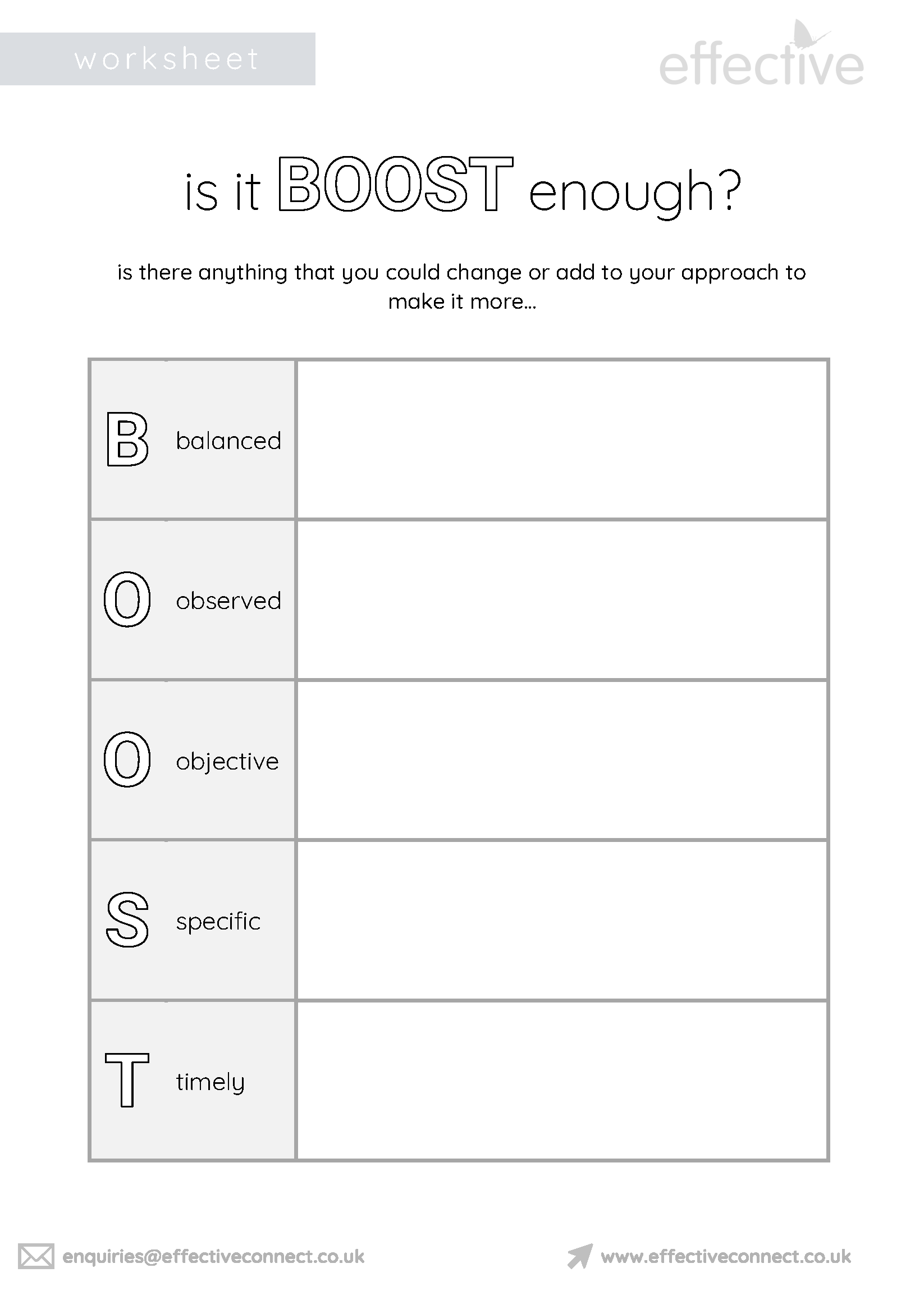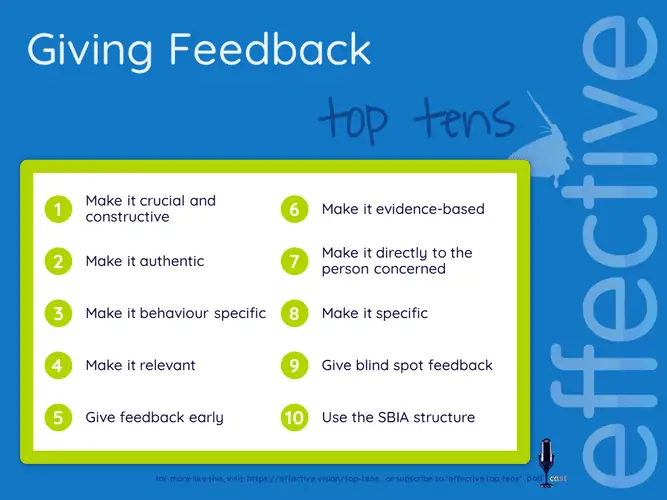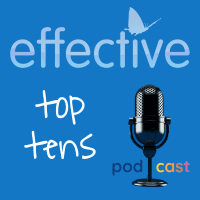
audio
This Pod is centred around a case study, focusing on Jill, who you will have to have a feedback conversation with. Read the case study, then open the worksheet. The worksheet will help you organise what you need to say to Jill (your content), and the order in which you say things (the structure). The pod contains two feedback models to help you with this: BOOST, which focuses on the content of your feedback; and SBIA, which focuses on the way you might want to structure your feedback.
Start now by reading the case study, then opening the worksheet, and completing the first page. Then have a look at the BOOST and SBIA models, and then complete pages 2 and 3 of the worksheet.
Read the case study, then decide how you would conduct a feedback conversation with Jill
- capture your initial thoughts on page 1 of the worksheet
- refine and improve your approach using the frameworks provided in this pod
You are the manager of Jill, who is team leader, in an office occupied by herself and three team members. Jill is only recently promoted, and hasn’t yet taken the role seriously, seeing herself still as ‘a team member’ rather than ‘a team leader’. She still dresses very casually, which you don’t think helps her identify herself as team leader, and you’ve intended to have a word with her about it, but haven’t got round to it yet. She also can be quite crude in her language, and swears a lot. Again, you should have said something to her about this, but haven’t.
Jill however is excellent at her job. She is technically gifted, and very conscientious and hard working. She is totally reliable, delivers consistently high results, is popular within and beyond the team, and is kind hearted. She does a lot for charity, and will help anyone if she can.
This morning Audrey, one of the team, asks Jill if she can borrow her stapler. Jill says ‘of course;, and throws it over to Audrey, hitting Audrey in the face and producing a gash above Audrey’s eyebrow.
Jill rushes to attend to Audrey, who is shocked and in pain. Jill asks another team member, Tom, to call for the first aider, and profusely apologises to Audrey. Eventually Audrey is taken to hospital, where she needs 6 stitches.
You’ve been elsewhere all morning. When you return, Jill has gone with Audrey to the hospital, and Tom, who was present throughout updates you on the incident (as described above). You decide you need to have a word with Jill.
& a fresh perspective...
Finally, a word about discipline.Many managers might feel it necessary – even part of their role, to make this a disciplinary case.But here’s an alternative view...A new member of staff made a significant error of judgement, resulting in a loss of £400 thousand pounds to the company. His manager called him in, and for 45 minutes thoroughly investigated what had happened, why, and what the individual would do in similar circumstances in the future. When the manager at last ended the conversation, the individual said “do you want me to clear my desk, and leave?” his manager said “why would I do that? It’s just cost the company “400 thousand pounds to train you!”
audio
The acronym BOOST stands for:
Balanced: give equal attention to strengths as well as areas for concern; and that the relevant importance of the individual strengths and areas for development are made clear.
Observed: make sure each element of your feedback is based on what the person has done or said, or not done or said. Also ensure it can be evidenced and that it is never based on assumptions or hearsay
Objective: feedback should be based on facts, not opinions; feedback should also represent the truth of what happened, without subjective interpretation
Specific: avoid being vague or generalised; and give specific examples to support your feedback
Timely: give feedback as close to the event as possible, before memory fades, and so any corrective action can occur quickly; set time aside for feedback - both formal and informal; make time to give ongoing positive feedback; and give the person receiving the feedback time to absorb, ask questions and reflect
Deciding what to say...
balanced
observed
objective
specific
timely
What's Your BOOST Score?
Complete the RAG grid to assess how well you currently meet the BOOST requirements, and make a note of any actions you need to take to get any amber or red score to convert to green.
audio
SBIA is a 4-step process useful for structuring your feedback. In this example I'll assume it is constructively critical feedback that is being given, but this model applies equally well for positive feedback and praise.
Situation: Start your feedback with scene-setting; give the individual the time and place, the event...so that they can immediately recall the situation, and have a fix on the context, so they are already focused, ready for the feedback.
Behaviour: next, describe the specific behaviour that is your cause for concern. Remember BOOST at this stage - your feedback has to be balanced, observed, objective, specific and timely
Impact: next, explain the impact or consequence that their behaviour has had. This is really important, because it is often the impact that increases the relevance of the feedback to the individual. One example; an individual was given feedback that they had mislabelled a box of the company's products. To the individual this initially didn't seem that significant an error - until it was pointed out that a newly born and at-risk baby was given the wrong blood in a critical transfusion, leading tragically to the baby's death...
Alternative: if this behaviour is not acceptable, then what would be acceptable? What should be the better behaviour should such a situation occur again. Though you might want to tell the individual what to do, it might be worth asking them for their suggestion, because if accepted, they will understand it, and be more likely to deliver it.
Deciding how to say it...
situation
behaviour
impact
alternative



